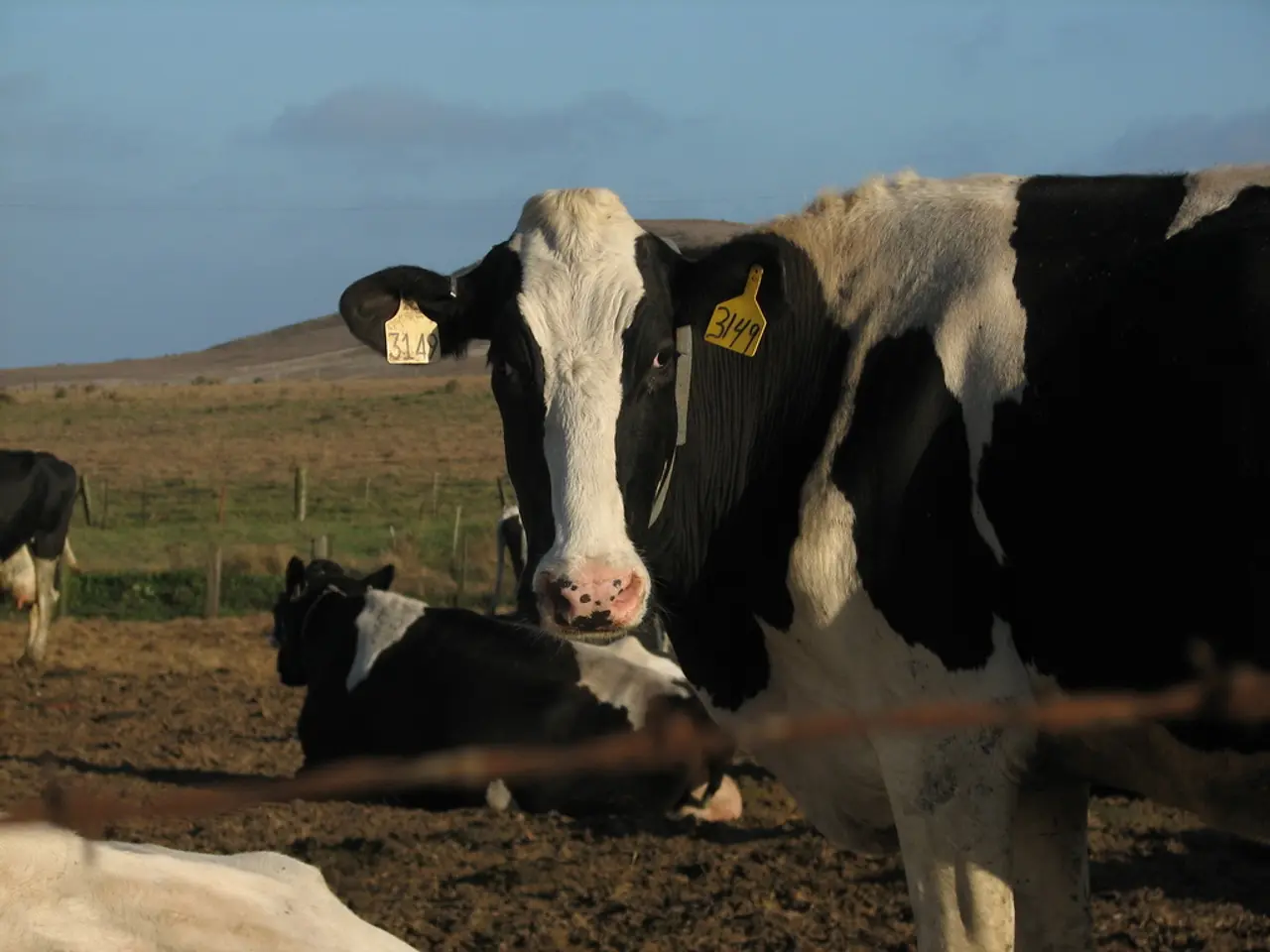Thailand Reveals a Four-Point Plan to Enhance Cattle Industry Competitiveness due to Growing Global Demand
The Trade Policy and Strategy Office (TPSO) of Thailand's Ministry of Commerce has unveiled a four-point strategy to bolster the Thai cattle industry, aiming to enhance production efficiency and expand market access. The strategy, detailed in a study titled "Thai Cattle Moving Forward to Global Markets: The Path to Sustainability for Thai Beef and Dairy Cattle," was released on August 2, 2025.
Embracing Technology and Innovation for Production Efficiency
The first pillar of the strategy, Production Stability and Strength, focuses on improving farming efficiency and reducing costs. This is achieved by adopting advanced technologies and better farming practices. The TPSO plans to facilitate knowledge transfer, encourage innovation adoption, and invest in supply chain management to align with approaches seen in sectors like processed foods and agricultural goods.
Expanding Market Access and Competitiveness
The fourth pillar, Market Expansion, aims to broaden export markets beyond traditional partners. This involves negotiating favourable tariff terms and establishing new trade partnerships to mitigate risks and increase long-term sustainability.
Striving for Price Stability and Fairness
The second pillar, Price Stability and Strength, promotes fair pricing mechanisms and reduces market volatility through structured market interventions and support systems. The Thai beef cattle industry, particularly, struggles with pricing issues, and this pillar aims to address these challenges.
Transitioning to a Sustainable Future
The third pillar, Technology and Innovation Stability, aims to encourage technological advancements and innovation within the Thai cattle industry. This includes potential incentive payment systems and public-private partnerships aimed at helping small to medium producers transition to more efficient and sustainable production methods.
Overcoming Challenges in the Dairy Industry
The dairy industry in Thailand also faces high production costs and the challenge of enabling small-scale farms to remain competitive in the long term. However, the TPSO's strategy is not limited to the beef industry, and it is expected to address these challenges as well.
Global livestock trade has shown consistent growth over the past decade, driven by technological advances and evolving consumer behaviour patterns. World beef consumption increased from 56.05 million tonnes in 2020 to 59.55 million tonnes in 2024. The TPSO's strategy is timely, as it positions the Thai cattle industry to capitalise on this growing market.
In summary, the TPSO’s policy recommendations involve a strategic blend of technological and process upgrades for production efficiency, protective but open trade policies enabling market expansion, and incentive frameworks encouraging sustainable industry growth. These measures are designed to strengthen Thailand’s cattle industry competitiveness domestically and internationally.
- The Trade Policy and Strategy Office (TPSO) is investing in supply chain management and encouraging innovation adoption to improve farming efficiency and reduce costs in the Thai cattle industry, as part of the Production Stability and Strength pillar.
- The TPSO aims to broaden export markets for the Thai cattle industry beyond traditional partners, to increase long-term sustainability, through the Market Expansion pillar, which includes negotiating favourable tariff terms and establishing new trade partnerships.
- The second pillar, Price Stability and Strength, promotes fair pricing mechanisms, reduces market volatility, and aims to address pricing challenges in the Thai beef cattle industry.
- The third pillar, Technology and Innovation Stability, is aimed at encouraging technological advancements and innovation within the Thai cattle industry, with potential incentive payment systems and public-private partnerships to help small to medium producers transition to more efficient and sustainable production methods.
- The TPSO's strategy is expected to address challenges in the dairy industry as well, including helping small-scale farms in Thailand become more competitive and reduce high production costs.




